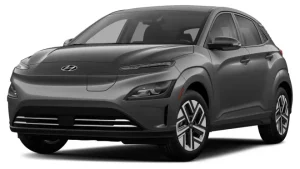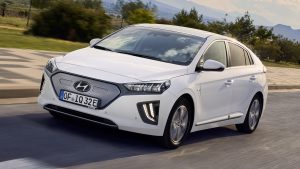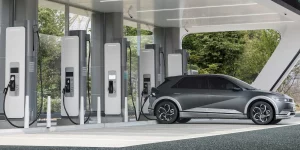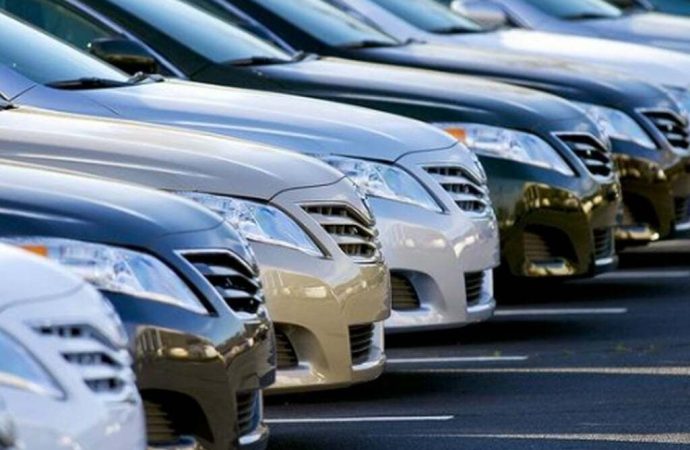Introduction: Hyundai’s Electric Drive: The Need for Speed Meets Eco-Efficiency. As the world becomes more conscious of the impact of human activity on the environment. The automotive industry is gradually shifting towards more eco-friendly solutions. One such solution is electric cars, which have been gaining popularity in recent years. Hyundai, one of the world’s leading
Introduction:
Hyundai’s Electric Drive: The Need for Speed Meets Eco-Efficiency. As the world becomes more conscious of the impact of human activity on the environment. The automotive industry is gradually shifting towards more eco-friendly solutions. One such solution is electric cars, which have been gaining popularity in recent years. Hyundai, one of the world’s leading car manufacturers, has been making significant strides in this regard with its electric drive technology. In this article, we will explore how the South Korean automaker is combining the need for speed with eco-efficiency.
Hyundai’s Electric Drive: The Rise of Electric Cars

Image by: yahoo.net
Electric cars have been around for over a century, but it is only in the last decade that they have gained widespread attention. This can be attributed to the increased focus on reducing carbon emissions and the advancement of battery technology. Electric cars are powered by rechargeable batteries, which can be charged by plugging into a charging station or using regenerative braking. They produce zero emissions, making them a more environmentally friendly alternative to traditional gasoline-powered cars.
Hyundai’s Electric Drive Technology
Hyundai has been investing heavily in electric drive technology. Which involves the development of electric motors, batteries, and power electronics. The company’s approach to electric cars is to make them more accessible to the masses by offering a range of affordable electric vehicles. Hyundai’s electric cars are designed to be practical, efficient, and fun to drive. They come equipped with features like regenerative braking, which helps recharge the battery while driving.
Hyundai’s Electric Drive Lineup
Hyundai’s electric car lineup includes the Kona Electric, IONIQ Electric, and the upcoming IONIQ 5. The Kona Electric is a compact SUV that offers a range of up to 258 miles on a single charge. It comes with a 64 kWh battery and a 201-horsepower electric motor. The IONIQ Electric is a hatchback that offers a range of up to 170 miles on a single charge. It comes with a 38.3 kWh battery and a 134-horsepower electric motor. The upcoming IONIQ 5 is a crossover SUV that is expected to offer a range of up to 300 miles on a single charge. It will come with a 77.4 kWh battery and a 225-horsepower electric motor.

Image by: topgear.com
Efficiency and Performance
Hyundai’s electric cars are designed to be both efficient and fun to drive. They offer instant torque, which provides a more responsive driving experience. The regenerative braking system helps recharge the battery while driving, increasing efficiency. Hyundai’s electric cars also come with features like adjustable regenerative braking, which allows the driver to adjust the level of regenerative braking to suit their driving style.
Charging Infrastructure
One of the biggest challenges facing electric car owners is the availability of charging stations. Hyundai is addressing this issue by partnering with charging infrastructure providers like Electrify America. The company is also offering its charging solutions. Such as the Kona Electric’s 100 kW DC fast charging capability, which can charge the battery from 10% to 80% in just 47 minutes.

Image by: electrek.co
Conclusion
Hyundai’s electric drive technology is a testament to the company’s commitment to creating a more sustainable future. The automaker’s electric cars offer a range of features that make them practical, efficient, and fun to drive. With the rise of electric cars, Hyundai’s electric drive technology is well-positioned to meet the needs of a more environmentally conscious society. As the company continues to invest in electric drive technology We can expect to see more affordable and accessible electric cars from Hyundai in the future.

















Leave a Comment
Your email address will not be published. Required fields are marked with *